At Applewood Joinery, we use a range of quality timbers to craft your joinery. In this post, we’ll take a look at our most popular options, their pros and cons, and what makes each one a great fit depending on your project.
European Oak
We’ve already covered oak in depth in our blog post ‘Oak That Lasts: What Makes It Special’, so I’ll keep things short and sweet here.
European Oak is one of our most popular choices at Applewood Joinery and for good reason. Its durability and natural beauty make it a standout material. While it’s a more premium option, the quality speaks for itself and it’s well worth the investment.
Used primarily for staircases, doors, and bespoke cabinetry, European oak’s distinctive grain brings a warm, natural finish to every piece.
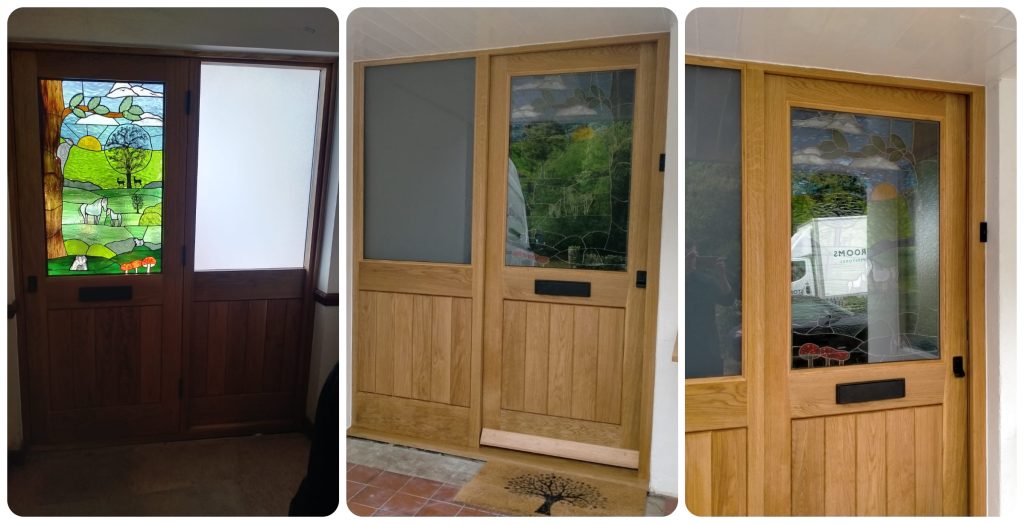
Softwood (Unsorted Redwood)
Softwood has always been a very popular choice here at Applewood Joinery. Our main softwood that we use is Unsorted Redwood. This is a blend of the top four quality grades from Scandinavian mills: Firsts, Seconds, Thirds, and Fourths.
Softwood is a favourite among joiners for its excellent workability. It’s easy to shape, quick to cut, and ideal for achieving precise, clean results. It’s consistent, dependable, and behaves just how you expect it to.
Softwood is often the more budget-friendly option in our joinery work, which makes it a popular choice for many of our customers. It offers great value without compromising on quality, especially for projects where cost-efficiency and reliable performance are key
We treat all our softwood with two coats of clear preservative to give it the best possible protection against the elements. This extra step helps extend its lifespan, reduce moisture absorption, and keep your joinery looking its best for years to come.
We use softwood across almost every part of our joinery. From doors and staircases to windows and the finer details like architraves and skirting, softwood is a versatile and practical choice.
There are a few downsides to using softwood for your joinery. Softwood often has more knots and natural imperfections, which can affect the final finish if not carefully selected, as a result, staining is often inconsistent or ineffective. They are also more prone to scratches and they will wear more over time, as well as being not as durable as hardwoods like sapele.
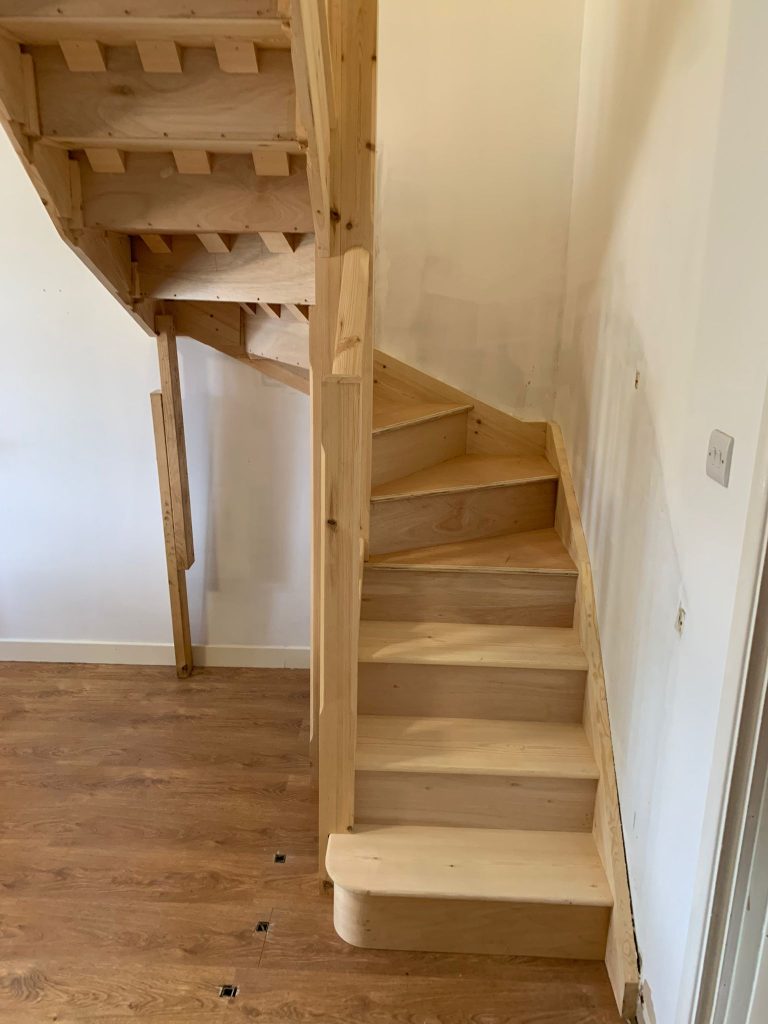

Sapele
Sapele is our top choice for premium joinery, sapele is a traditional known for its rich reddish brown colour and distinctive interlocked grain.
Sapele is a hardwood from the same botanical family as mahogany, making it a close relative of this classic timber. It shares many of mahogany’s qualities.
Sapele is a highly durable timber, making it an excellent choice for doors and windows. Its strength and stability mean it holds its shape over time, even in challenging conditions. This makes it ideal for exterior joinery.
We mainly use sapele for windows and doors, but its versatility means it suits a wide range of other joinery projects too. It takes paint exceptionally well and can be stained to bring out its rich grain, though most of the sapele work we produce is spray finished for a smooth, consistent result.
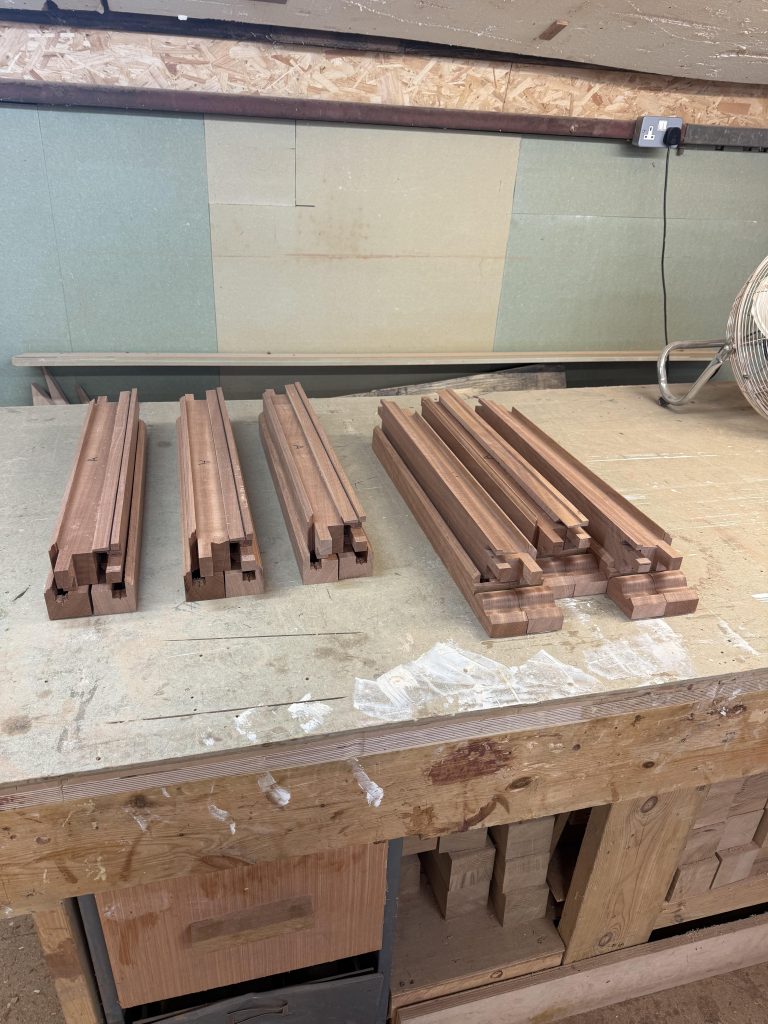

Accoya
Accoya is a highly requested timber here at Applewood Joinery. Accoya is a special type of timber, it’s not a species but a modified softwood. It is usually Radiata pine, and this undergoes acetylation: a vinegar-based process that transforms it into one of the most durable woods available.
Accoya is built for lasting performance. It stays stable in all conditions, without warping, swelling or shrinking. It also takes finishes beautifully, with coatings typically lasting three to four times longer than on standard timber. Accoya comes with a 50-year guarantee against rot, even in challenging outdoor conditions
We use Accoya across a wide range of joinery projects thanks to its outstanding qualities. From windows and doors to other exterior features, it performs brilliantly. Many of our customers choose Accoya, and with its durability and finish, it’s easy to see why.
Iroko
Iroko is a remarkable hardwood native to tropical West Africa. Known for its durability and natural resistance to the elements, it performs exceptionally well in outdoor settings. At Applewood, we use it occasionally and mainly on request, as it’s not a material our customers often ask for and we do not keep it in regular stock
We use iroko for external staircases because of its exceptional durability and natural resistance to weather. It’s a timber that performs brilliantly outdoors, offering long-term strength. We occasionally use iroko for windows and doors too, typically when a project calls for its durability and weather resistance. It’s not a common request, but it performs well in exposed settings and adds a distinctive finish.
There are a few downsides to iroko, it is a difficult timber to work with as the saw dust is very thick and has a distinctive odour. Iroko’s interlocked grain can be tough on blades and prone to splintering during machining. It requires sharp tools and careful handling to achieve clean cuts.
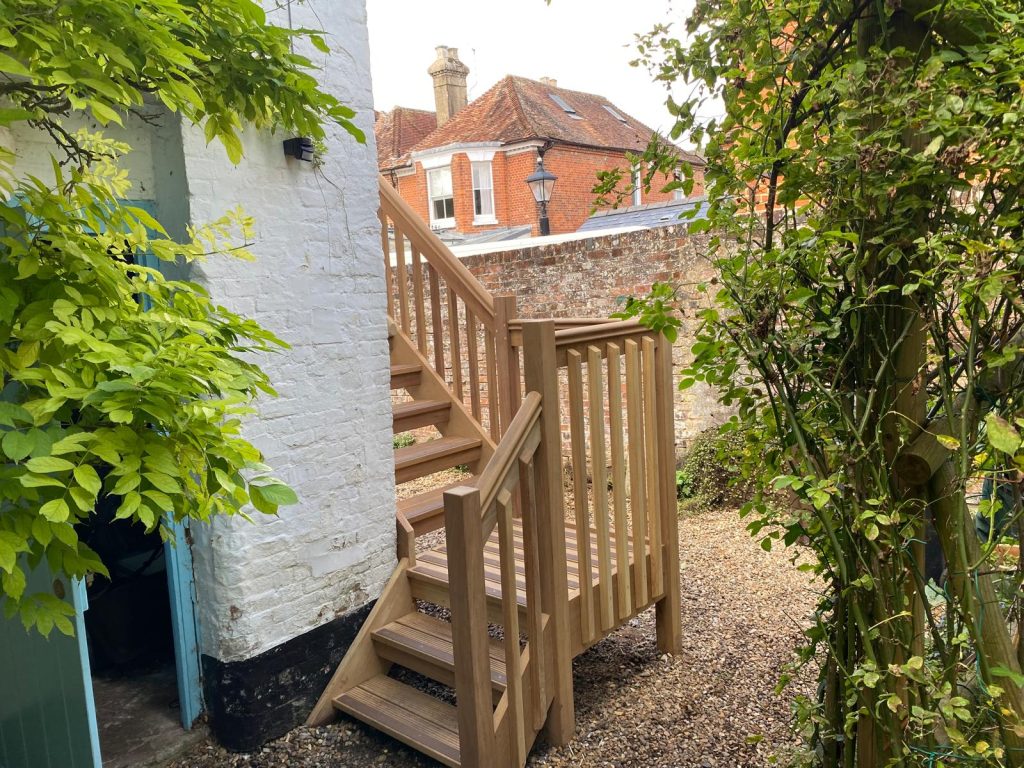
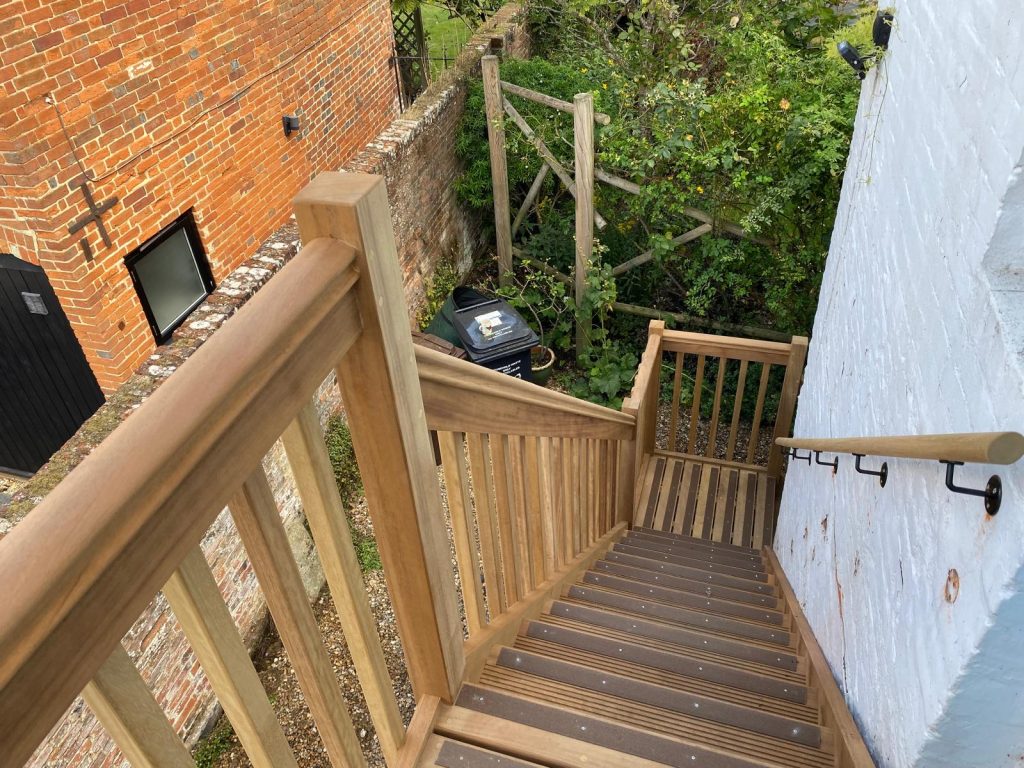

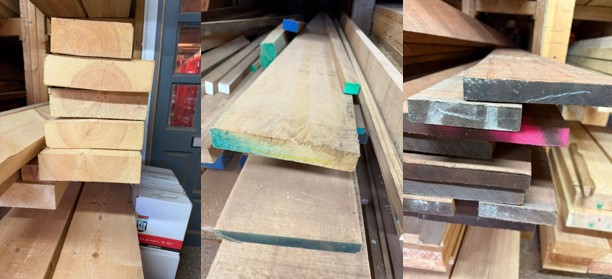

Comments
3 responses to “Timber Talk”
[…] JOINERY TIMBER TALK TIMBER OVER UPVC FIND YOUR FINISH WHAT MAKES OAK SPECIAL BEHIND THE SCENES FITTED UNITS BESPOKE […]
[…] THINGS GLASS TIMBER TALK TIMBER OVER UPVC FIND YOUR FINISH WHAT MAKES OAK SPECIAL BEHIND THE SCENES FITTED UNITS BESPOKE […]
[…] wellow why we love softwood garage doors where craft meets care heritage joinery all things glass timber talk timber over upvc find your finish what makes oak special behind the scenes fitted units bespoke […]